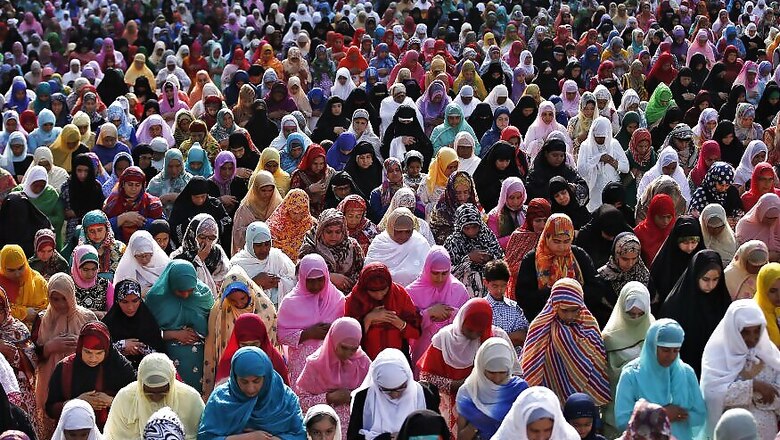
views
New Delhi: The Centre on Thursday submitted questions in the Supreme Court on whether practices like triple talaq and polygamy were protected by the Constitution and consistent with international treaties signed by India.
The four questions framed by the Centre were: 1. Whether the impugned practices of Talaq-e-Biddat, Nikah Halala and polygamy are protected under Article 25(1) the constitution?, 2. Whether Article 25(1) is subject to part III of the constitution and in particular articles 14 and 21 constitution?, 3. Whether personal law is "Law" under article 13 of the constitution, and 4. Whether the impugned practices of Talaq-e-Biddat, Nikah Halala, and Polygamy are compatible with India’s obligations under international treaties and Covenants to which it is a signatory?
The apex court is in the process of setting up a five-judge constitution bench which will be hearing the matter.
SC had asked all the parties to frame their respective set of questions and accordingly the Central government submitted its list in the court.
ALSO READ: Triple Talaq: All You Need to Know About Controversial Muslim Divorce
In the last hearing on February 14, SC had clarified that it would not touch the domain of Uniform Civil Code, but made it clear it wants to adjudicate on the triple talaq issue as it “was a matter which involved a person’s human rights.’
"It's a matter of human rights, so we would deal with it properly," the court said.
The apex court said the question whether divorce under Muslim Personal Law needs to be supervised by either courts or by a court-supervised institutional arbitration falls under the legislative domain.
The court, meanwhile, allowed the lawyers to file a small synopsis of cases pertaining to alleged victims of triple talaq.
Several women activists have filed petitions in the Supreme Court seeking ban on triple talaq. In a counter affidavit the Central Government had submitted before the top court that it is against gender injustice and for equality between men and women under the Constitution.
A bench of the apex court, headed by Chief Justice of India, Justice Jagdish Singh Khehar said that it would pass an order and dispose of the petitions on May 11, regarding the validity of triple talaq case. The court was hearing a plea filed by Shayara Banu who had moved the apex court challenging the legal validity of triple talaq.
Shayara has also challenged the concept of 'Nikah-Halala' in the SC, under which a woman must consummate another marriage in order to go back to her first husband if she wants to. Shayari also wants to outlaw polygamy within a Muslim marriage.
Last year the Allahabad High Court termed the Islamic practice of divorcing a woman by uttering the word "talaq" thrice as unconstitutional. The court further observed that the triple talaq practice sanctioned under Muslim Personal Law that governs marriage, property and divorce violates the rights of Muslim women.
"Triple talaq is unconstitutional, it violates the rights of Muslim women," ruled the High Court, adding that no personal law board is above the Constitution.















Comments
0 comment